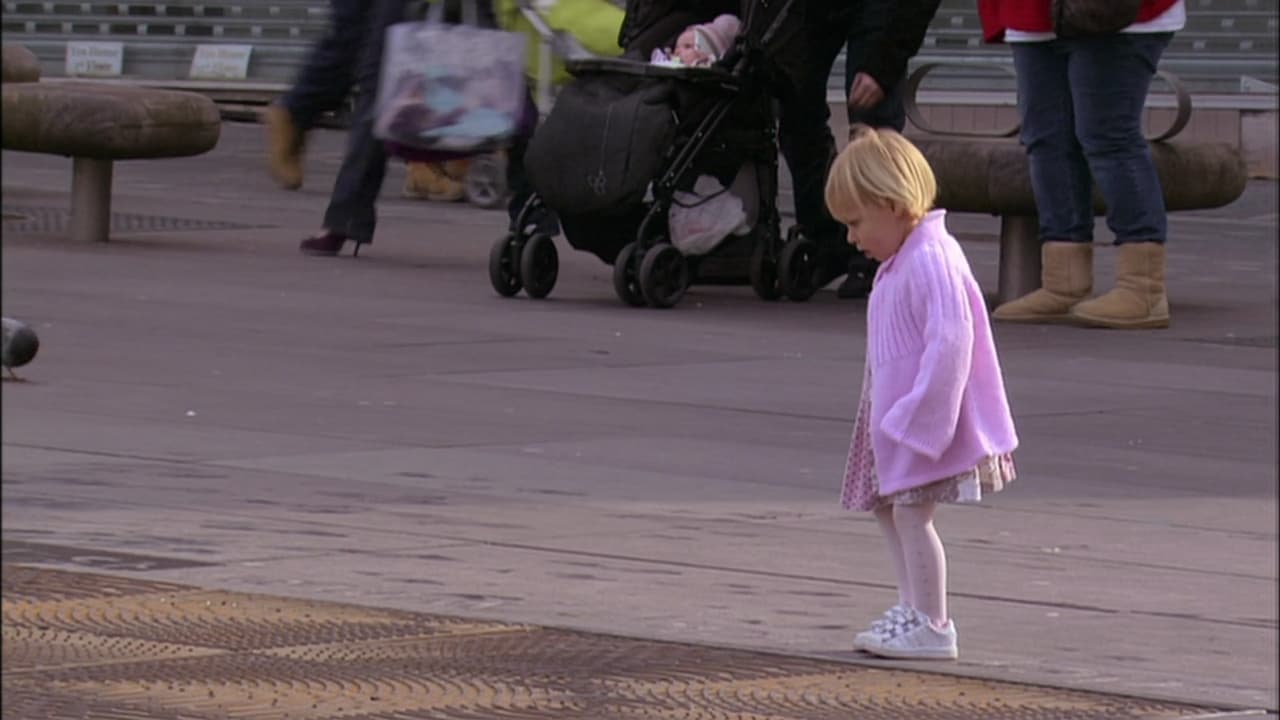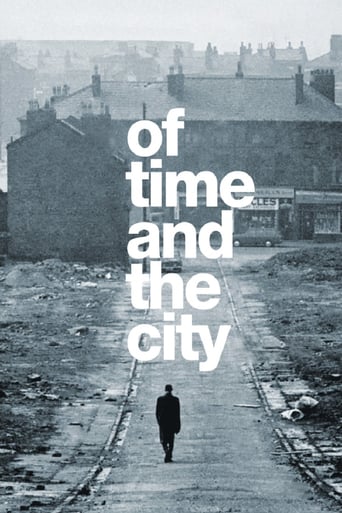

What makes it different from others?
... View MorePeople are voting emotionally.
... View MoreHighly Overrated But Still Good
... View MoreThrough painfully honest and emotional moments, the movie becomes irresistibly relatable
... View MoreHis first film since House of Mirth in 2000, Terence Davies' elegiac documentary Of Time and the City is a snapshot of memories from his formative years in Liverpool, England, a city mostly known to the world as the home turf of the Beatles. Consisting of archival footage, personal photographs, and contemporary video, Of Time and the City is not meant as a historical document or a linear chronology of events but as a poetic tribute to the city in which he lived from 1945 until 1973, a tribute, however, that is unfortunately tinged with bitterness toward the institutions that made his life as a gay man full of anguish.Proclaiming that "the world was young and oh how we laughed", Davies shows us glimpses of early days at the beach with extras serving as stand-ins for his family, football matches with their huge crowds, and many, many children with smiling faces. There are also photos of working class families going about their daily chores, carrying their laundry down the street to neighborhood laundries on the top of their head, and buildings defaced with prominent graffiti. To provide context for the images, the film's soundtrack offers bits of popular and classical music, operatic arias, excerpts from radio programs, and Davies' own narration of passages from Yeats, Joyce, Engels, Chekhov, Jung, and Eliot, all delivered in a tone of solemn incantation.Davies remembers his love for American movies and how he was addicted to Hollywood musicals, westerns, and dramas when he was a young man. Highlighting the appearance of Gregory Peck at the Ritz Theatre across the river from Liverpool, Davies recounts that "my love was as muscular as for my Catholicism, without any of the drawbacks." Raised as a devout Catholic, the director, now 64, seems to reserve his best barbs for the institution that thwarted his self expression, telling us that religion is "all a lie" and that he has become a "born-again atheist" even while acknowledging his guilt for going to wrestling matches to sneak a feel at passing bodies.To the music of the Ewan McColl song "Dirty Old Town" from 1949 that evokes the factories of northern England, the film shows us the poverty and the slums that were torn down in the 1960s only to be replaced by sterile high rise projects which did little to alleviate the poverty. "We had hoped for paradise", Davies proclaims, "we got the anus mundi", a phrase that does not require a translation. He also does not spare the British monarchy from his venom, calling the coronation in 1953, "Betty and Phil and a thousand flunkies." He notes the amount of money that was "wasted on the monarchy...privileged to the last," while the rest of the population, "survived in some of the worst slums in Europe!" As for the Fab Four, the only mention they are given is a condescending "yeah-yeah-yeah-yeah," when they are shown in a Liverpool gig. Following the tradition of what he calls "the British genius for creating the dismal," Davies does nothing to lighten the gloom or show the resiliency of the folks in that "dirty old town" but offers only a decidedly skewed look at a vibrant creative city, distorted by his own memories of isolation. Calling his film his "chanson d'amour for all that has passed," Davies fails to communicate the warmth and love implicit in that label. He quotes Chekhov that "the golden moments pass and leave no trace", yet fails to see that for the golden moments to leave their mark, one needs to look past the anger and expand one's vision to see the "Penny Lanes" and the "Strawberry Fields Forever".
... View MoreSorry, couldn't appreciate it. I'm originally from St. Petersburg, Russia, but my husband grew up in Manchester (in the 50s and 60s), and I do like both the old and new bits of his home city. It's mainly the author's personality that happened to irritate me the most - I found him too pretentious (starting from that theatre curtain episode in the beginning) and felt like he had made this film basically for himself. It was too lengthy, there were many repetitive shots and arie all over the place (drowning the little girls' song which I actually wanted to hear). Rationally, I'm taking Davies's point but emotionally, I couldn't wait till the film was over. Talking about life experience similar to Davies's, I much prefer the late Dutch writer Gerard Reve.
... View MoreOn BBC TV there is a regular half-hour programme called 'Grumpy Old Men', on which the likes of Arthur Smith, Noddy Holder, and others - within the 45-60+ group - let rip about the state of modern society and, usually, how it was so much better in their days. After watching this diatribe from Mr Davis it would not surprise me to see him turning up on a later series of the programme due to the fact that this film, poetic as it may have been, came across as no better than a glorified 76 minute version of it.This is not to say that the film does not have its moments, because it most certainly does. When he is riling against the British Monachy, or religion - the Catholic church in particular, the film comes alive even if you disagree with what he is saying, maybe even finding it offensive. But the trouble with the film is that these moments are few and far between, and too much time is taken up with dull, pointless views of dull, pointless buildings, often making blindingly obvious points that have been many times before (yes, we know the high-rise homes very quickly disintegrated into slums that were no better, and often worse, then those back-to-back terrace houses they replaced).When it came to the people of Liverpool the shots he included again seemed to be those we have seen 100's of times before on other, better, documentaries about the city. Kiddies playing in the streets, playgrounds full of swings and slides etc, etc... yes, yes, we know it was all so much better then - apart from the increased infant deaths, illnesses caused by poverty and poor diet etc! Then comes the music! How can Mr Davis dismiss the Beatles and the whole of the Mersey sound in just a few fleeting moments, and pretty damning moments as well. Does he not realise that these pop/rock groups, along with Liverpool and Everton FC's, did more to put the city of Liverpool on the map, rising its profile across the globe and helping it to recover its pride and place in the world following on from the collapse of its traditional industries than any other thing? The legacy of that period is still felt today, be it in the eternal popularity of the Beatles and other groups from the 1960's, the modern classical stylings of Sir Paul McCartney, McCartney's legacy to the city in LIPA, or the recent pop and rock sounds of such groups as The Zutons etc, and this is something that Mr Davis should have acknowledged in this film.Before watching this film I had viewed the new Clint Eastwood film 'Changeling', which has a running time of some 2 1/2 hours, yet that film seemed to last about half that time, whilst this film runs for just over 76 minutes and yet seemed much, much longer. Mr Davis is a very talented film maker, as films like 'The Long Day Closes' have shown, and surely it was not beyond his fierce-some intellect to create a fictional film in which his sentiments could have been expressed in a much more entertaining way. Maybe now he has got all this off his chest he will get back to doing what he does best and give us a film worthy of his talents next time round.
... View MoreTerence Davies's documentary "Of Time and the City" should be considered as more of a cinematic poem. This can be a very irritating thing, and Davies does not make it all the way through the film without falling into self-indulgence. However, he does construct a quite beautiful piece of cinema.This is flawless in areas. Davies's selection of music and images is impeccable, and his voice is a delight to listen to. As a result, a number of sequences are joyous to experience. The slice of the Korean War combined with "He ain't heavy, he's my brother" by The Hollies is my particular favourite. Davies is also, at times, devilishly funny. His description of the coronation of Elizabeth II as the beginning of the "Betty Windsor Show" raised a good laugh from the audience in my screening, and there are many other lines like it.Davies is at times profound. His own personal writing about his awakening sexuality and the Roman Catholic Church is very interesting and honest. However, as he repeats the formula of poetic monologue leading on to music sequence time after time, he becomes less interesting and more self-indulgent.Although this is a short film (clocking in at about an hour and a quarter), boredom could prove to be a problem. Nevertheless, this is an impressive and beautiful film. It isn't perfect, nor is it a masterpiece, but it is head and shoulders above many other films and an enjoyable experience.
... View More